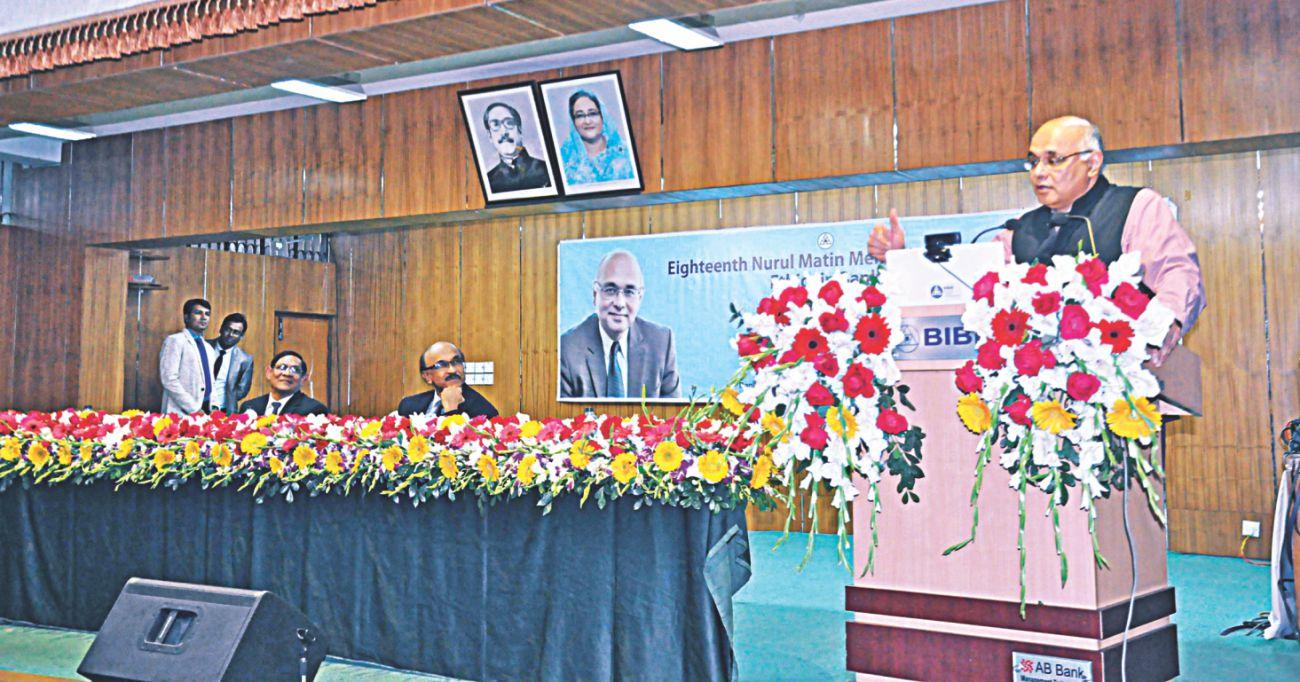Ethical banking hinges on ethical parliament

A parliament that follows the principles of ethics is important for the growth of an ethical banking system, said Junaid Kamal Ahmad, country director of the World Bank India.
“Give me an ethical parliament and I will give you an ethical banking system,” he said while delivering a keynote speech in Dhaka on Monday.
He spoke at the “18th Nurul Matin Memorial Lecture on Ethics in Banking” organised by the Bangladesh Institute of Bank Management (BIBM) at its auditorium.
Since 2001, the BIBM has been organising the annual lecture in memory of AFM Nurul Matin, a former deputy governor of the Bangladesh Bank, who made significant contribution to the banking sector after the emergence of Bangladesh.
Ahmad said political relationship would have to be understood to address the problems of ethics in the banking system.
Protection of a financial system lies in the hands of political system and a parliament gives the basis of ethics in the banking system, he said.
“Ethics in banking is really about ethics in political system. Ethics helps us understand the relationship between the political system and the banking system.”
“This relationship, in my opinion, can only be addressed if we are willing to recognise the linkage among public policy, political economy and the banking system.”
“If you do not believe the fundamental relation between the political system and the financial system, you will not be able to resolve the crisis of the banking system.”
Ahmad said ethics in the financial system is important to establish trust of the public in the banking system.
He said the principle of ethics could not easily offer organising principles for the design and development of the financial system. Instead, he gave greater importance to the management of public policy and regulatory framework and the balance between the two for the functioning of a financial system.
Ahmad outlined the importance of corporate governance that focuses on the responsibility of banks' governing board, management and employees. But, the impact of corporate governance measures will depend on the strength of the overall governance around the financial sector.
Ahmad said governments should not control interest rate. However, he said, no governments will give up the ability of controlling pricing because price is the important powerful political tool globally.
He suggested banks emphasise self-regulation to reduce non-performing loans in the banking sector.
He recommended strengthening the independence and capacity of central banks for the safeguarding of the banking system.
Bangladesh is now moving towards the middle-income country status with 8 percent GDP growth, said Fazle Kabir, governor of Bangladesh Bank.
“There is a criticism about jobless growth, but I don't agree with it,” he said.
He said that the industrial sector saw higher growth, contributing significantly to the gross domestic product. The industrial growth is led by the manufacturing sector, which creates jobs.
The governor said banks are making long-term infrastructure financing on the basis of short-term deposits, creating a mismatch in the financial market.
But the mismatch will be corrected soon because the central bank is working to develop the bond market, Kabir said.
